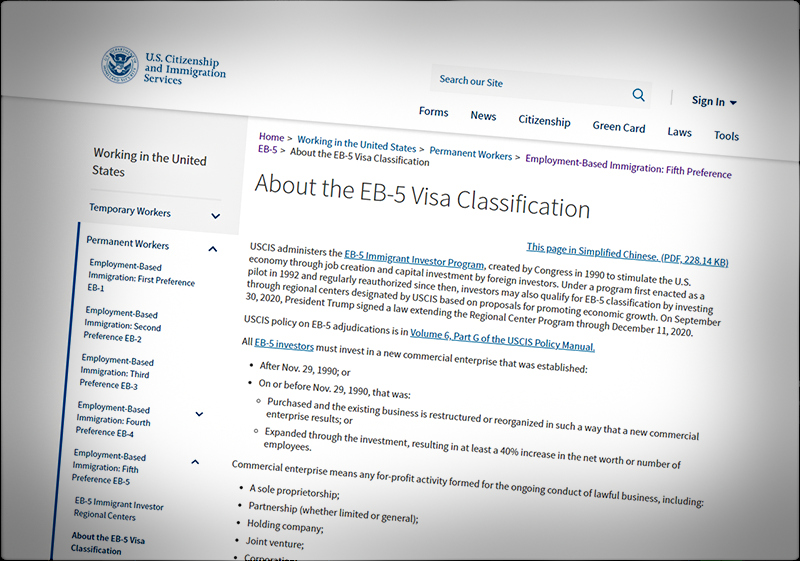
Will a civil servant, a magistrate judge in the federal court system, decide the fate of the EB-5 (immigrant investor) program, rather than senators, House members, and cabinet officials — again?
As the reader may recall, eight months ago one such civil servant, undid the regulatory labors of both the Obama and the Trump administrations (over a period of years); both the Obama and the Trump administrations wanted to reform the scandal-prone program, to raise the inflation-weakened investment minimum, and to remove the economic gerrymandering in it. A middleman entity, a Homeland Security licensed regional center, Behring Regional Center, had sued, saying that the regulations were unlawful.
The presiding civil servant agreed, arguing that the acting secretary of Homeland Security at the time had no legal right to issue those regulations as he had not been appointed appropriately. This is exactly what the industry wanted; the Biden administration at first appealed as they should have done and then caved and withdrew the appeal.
Now in a potentially eyeball-rolling replay of history, yet another magistrate judge, again sitting in California, is in a position to toss out a congressional decision on EB-5, in this case not to re-authorize the major part of the program, which is dead at the moment. This is the part that deals with pooling EB-5 funds into major investments (usually in big-city real estate projects), all managed by regional centers.
And who is bringing the suit? It is Behring, again. The case number in the PACER system and the title are 3:22-cv-01049-AGT, and Behring Regional Center LLC v. Majorkas et al.; this time the magistrate judge is Alex G. Tse.
As previously explained, the merits of the matter are not being discussed. This time around the EB-5 people are saying that while Congress failed to re-authorize one part of the law, Section 610 (b), it left alone Section 610(a) which it argues was the one that authorized the regional center operations.
I am not a lawyer, so I will not pass judgment on the thrust of the argument, but I feel it appropriate to notice that the EB-5 industry, and all of its lawyers, took eight months to notice this variable. If Behring is right, the industry lost eight months of profits because no one in the industry read the law correctly.
Will judge Tse move more quickly than Congress? It will be interesting to see how this plays out.
If the judge rules for the industry it will restore the regional center program, and since the other judge eliminated the reform regulations, the EB-5 business will be in exactly the same (grim) situation as it was a year ago, still operating and still unreformed.
The author is grateful to Matthew Bonness for a tip on this subject.
